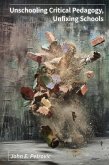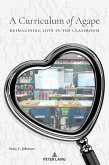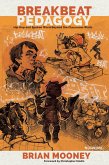Though conservatives and criticalists perhaps espouse different values and social assumptions as rationale for reforming schools, they both seek to "fix" schools. Unschooling Critical Pedagogy, Unfixing Schools argues that in this move to fix, they both either deny or misread the material dimension of schooling, thereby unnecessarily limiting possibilities for human flourishing within educational environments. In order to unfix schools, making them dynamic and critical places of engagement, educators must review and revive their critical roots through Marx to overcome the educational necrophilia that has simply overwhelmed schools through the material conditions both within and without. Critical pedagogy is insufficient for such a project, with some iterations of it becoming errors of commission. Moving from Marx to Althusser to Illich, Unschooling Critical Pedagogy, Unfixing Schools concludes with a recommendation for unschooling in schools which requires getting students out of schools as much as possible.
Dieser Download kann aus rechtlichen Gründen nur mit Rechnungsadresse in A, D ausgeliefert werden.
"This is a very interesting and timely contribution to the discussions in the field of education. With the recent worldwide rise of extremism, both of the left and right, this book provides a well-balanced and thought-provoking discussion on the problems of, and need to (un)fix schools. There is a longstanding tradition of both liberal and conservative groups seeking to fix education and thereby applying their too often temporary solution. However, as the author suggests, it is our urge to try to control and fix education that might be the very problem with education; thus education needs to be unfixed. In addition, it also makes credible reference to some stimulating philosophical figures, such as Louis Pierre Althusser, and this adds strongly to the appeal of the volume. The format and general style make it very suitable for both students as well as academics."-Alex Guilherme, Pontifical Catholic University of Rio Grande do Sul, Brazil









